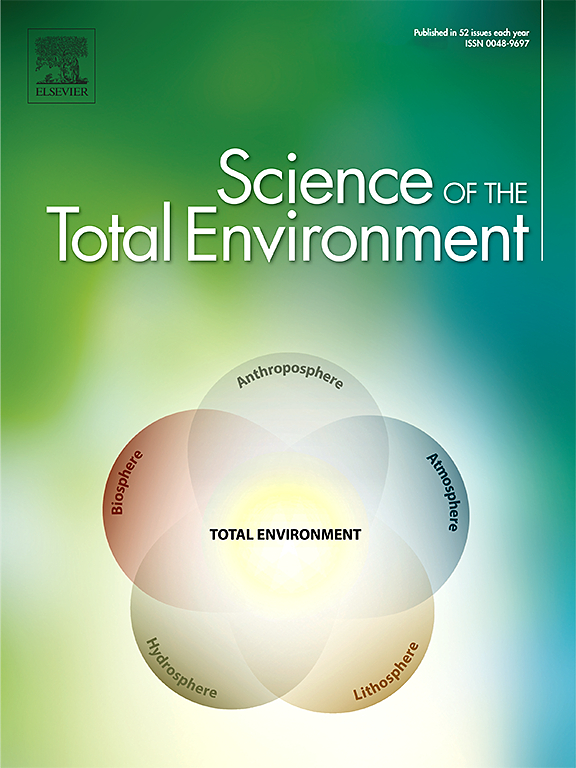环境污染物和昆虫:生态系统和农业可持续性的遗传策略
IF 8.2
1区 环境科学与生态学
Q1 ENVIRONMENTAL SCIENCES
引用次数: 0
摘要
昆虫具有丰富的生物多样性和重要的生态作用,对农业、纺织生产和环境稳定至关重要。作为传粉者、分解者和生物指示者,它们支持生态系统功能和人类工业。它们的繁殖时间短,繁殖率高,遗传适应性强,使它们成为研究癌症等人类疾病的有价值的模型。然而,污染物对工业上重要的昆虫构成了重大威胁,影响了生态系统和工业。过度使用农药破坏生态平衡,导致全球昆虫数量下降。了解污染物如何影响昆虫生理对于评估其对农业、粮食安全和生物多样性的广泛影响至关重要。这篇跨学科的综述结合了昆虫学、遗传学和环境科学来探索这些影响。此外,它还审查了基因干预的潜力,以减轻污染物引起的危害,确保昆虫介导的服务的可持续性。为了保护这些重要物种,必须采取综合保护和可持续利用战略的综合办法。本文章由计算机程序翻译,如有差异,请以英文原文为准。
Environmental contaminants and insects: Genetic strategies for ecosystem and agricultural sustainability
Insects, with their vast biodiversity and essential ecological roles, are crucial to agriculture, textile production, and environmental stability. As pollinators, decomposers, and bioindicators, they support ecosystem functions and human industries. Their short generation time, high reproductive rates, and genetic adaptability make them valuable models for studying human diseases like cancer. However, contaminants pose significant threats to industrially important insects, impacting ecosystems and industries alike. Excessive pesticide use disrupts ecological balance, contributing to the global decline of insect populations. Understanding how contaminants affect insect physiology is critical for assessing their broader implications on agriculture, food security, and biodiversity. This interdisciplinary review integrates entomology, genetics, and environmental science to explore these impacts. Additionally, it examines the potential of genetic interventions to mitigate contaminant-induced harm, ensuring the sustainability of insect-mediated services. To safeguard these vital species, a comprehensive approach that integrates conservation and sustainable utilization strategies is essential.
求助全文
通过发布文献求助,成功后即可免费获取论文全文。
去求助
来源期刊

Science of the Total Environment
环境科学-环境科学
CiteScore
17.60
自引率
10.20%
发文量
8726
审稿时长
2.4 months
期刊介绍:
The Science of the Total Environment is an international journal dedicated to scientific research on the environment and its interaction with humanity. It covers a wide range of disciplines and seeks to publish innovative, hypothesis-driven, and impactful research that explores the entire environment, including the atmosphere, lithosphere, hydrosphere, biosphere, and anthroposphere.
The journal's updated Aims & Scope emphasizes the importance of interdisciplinary environmental research with broad impact. Priority is given to studies that advance fundamental understanding and explore the interconnectedness of multiple environmental spheres. Field studies are preferred, while laboratory experiments must demonstrate significant methodological advancements or mechanistic insights with direct relevance to the environment.
 求助内容:
求助内容: 应助结果提醒方式:
应助结果提醒方式:


